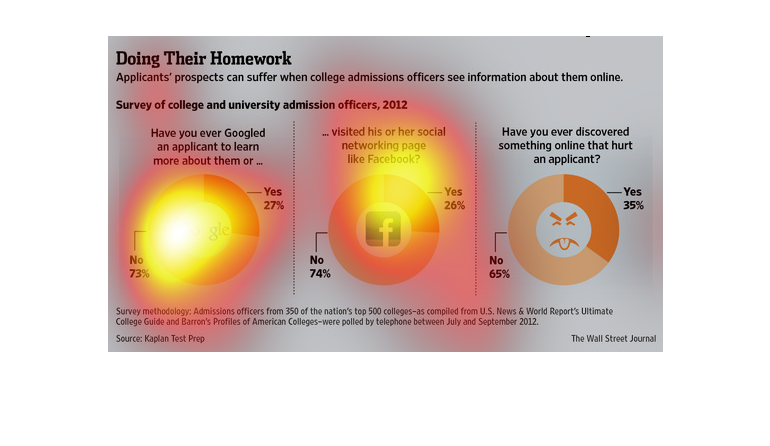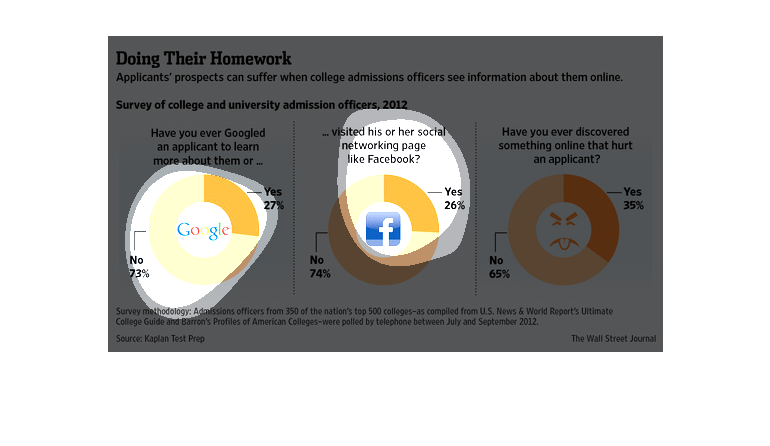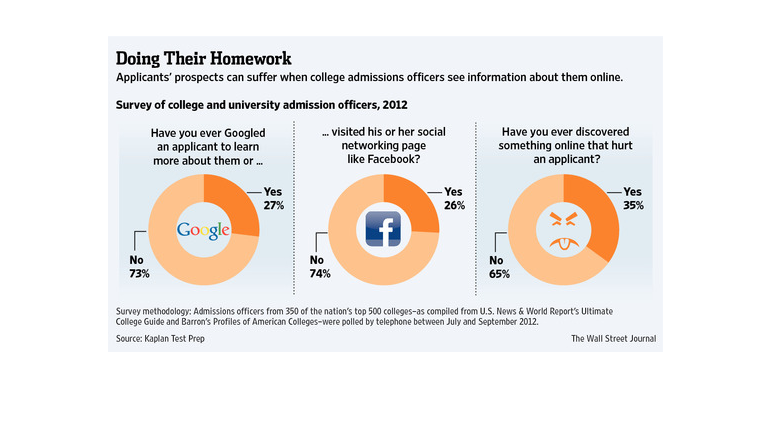
The image depicts applicants prospects can suffer when college admissions officers see information
about them online. Data is from 2012. The majority of the time admission officers claim not
to have googled or used facebook to find information about applications, with a minority saying
they did.
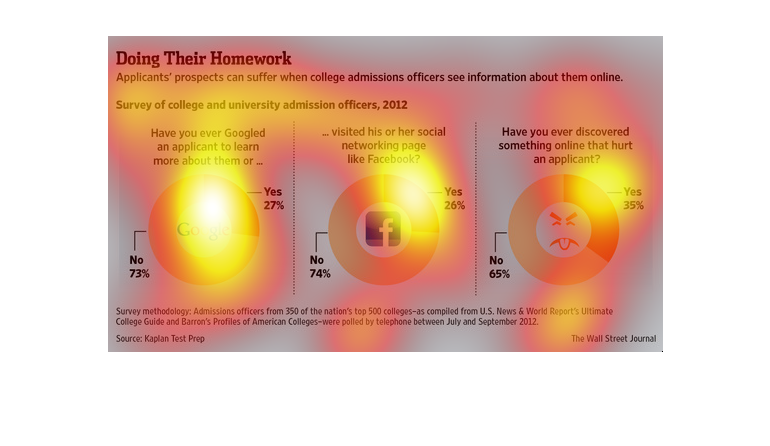
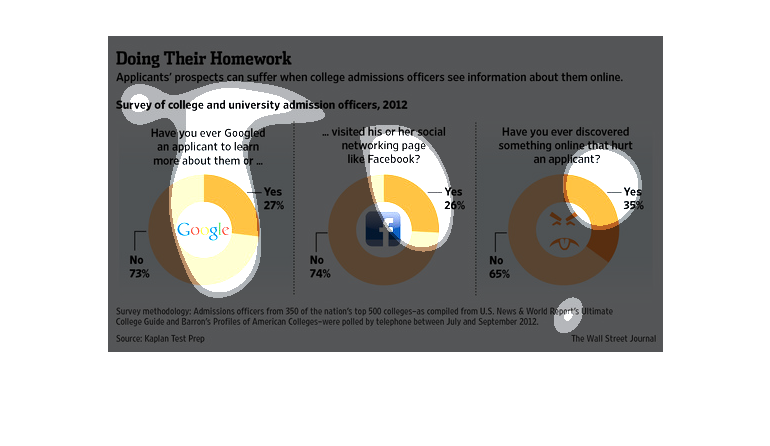
it is a diagram showing the websites that people searched for college admissions info.It show
different percentages from the sites that they went to in the year 2012.
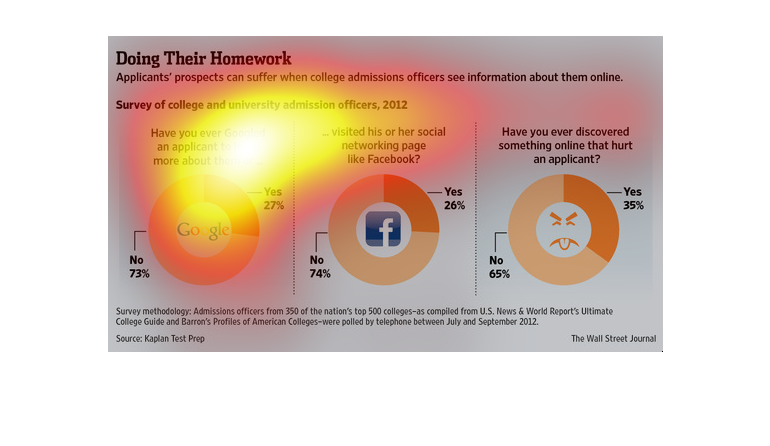
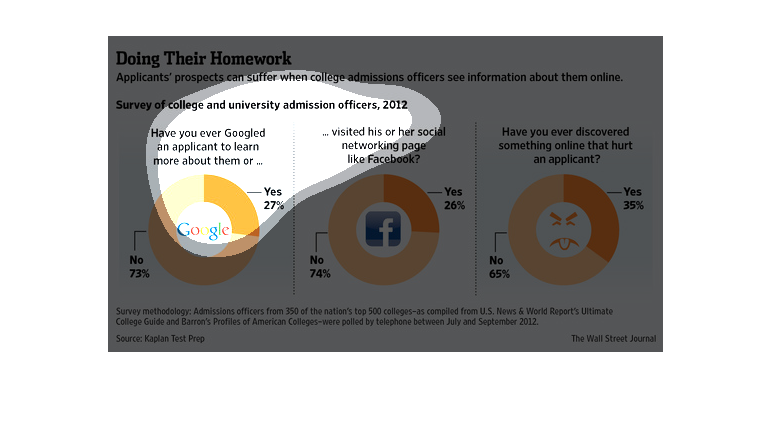
This chart has three different graphs to illustrate the relative amounts of online research
admissions officers at colleges and universities have done regarding their perspective student
applicants. The graphs show that most admissions officers have not done meaningful research
on applicants on Google or Facebook, but some have. And another chart indicates that 35%
of researchers have found information that hurts applicants.
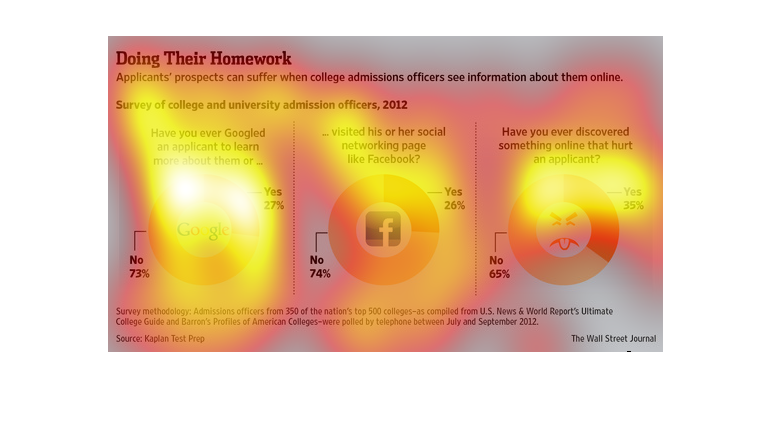
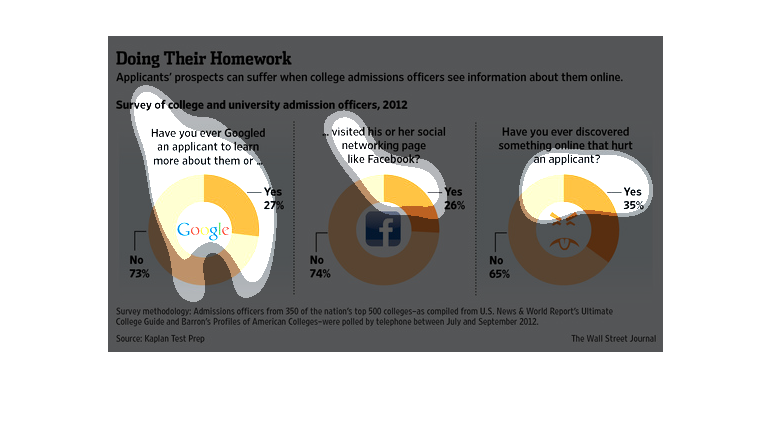
This is a page with three different figures showing whether college recruiters have used google
or social media to find anything that would prevent them from accepting an applicant. overall,
35 percent of recruiters says they have found something online that stopped them from accepting
someone.
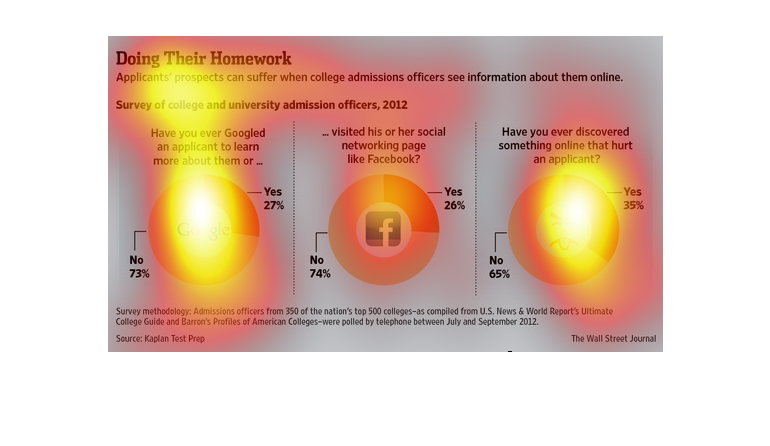
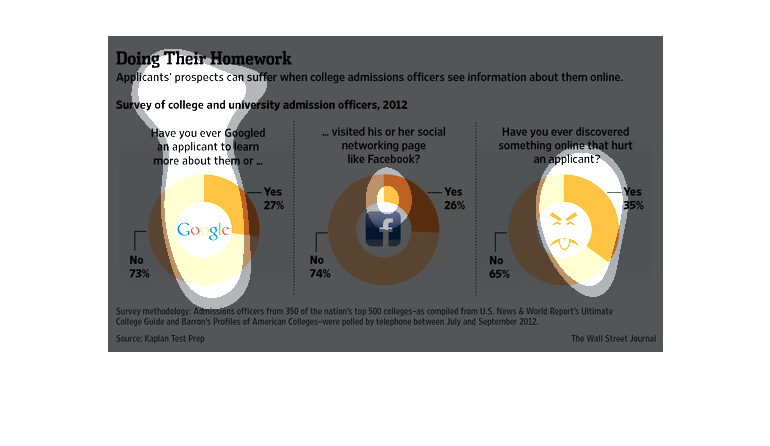
This chart describes doing their homework. Specifically, applicants' prospects can suffer
when college admissions officers see information about them online.
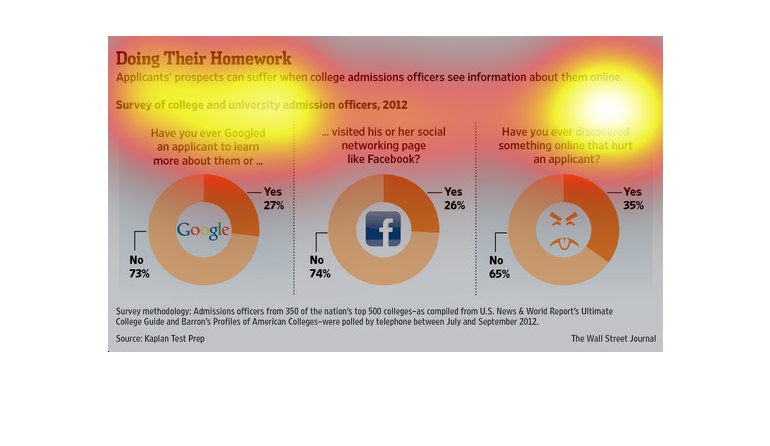
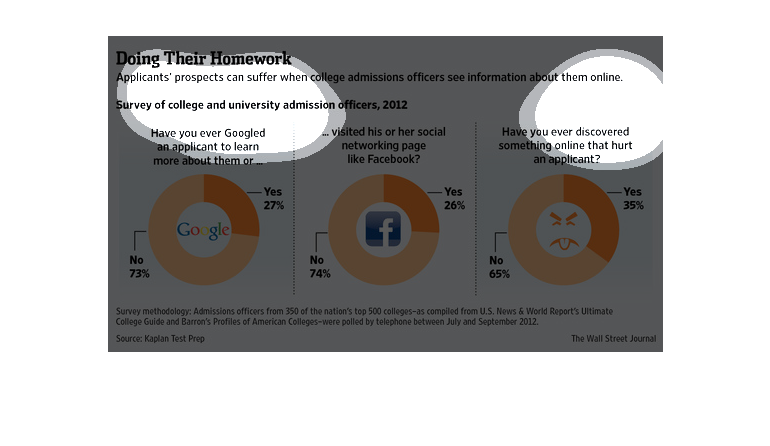
This is a graph showing the data regarding college admission officers looking up applicants
online. The data shows that more often than not, online searching hurts the applicant.
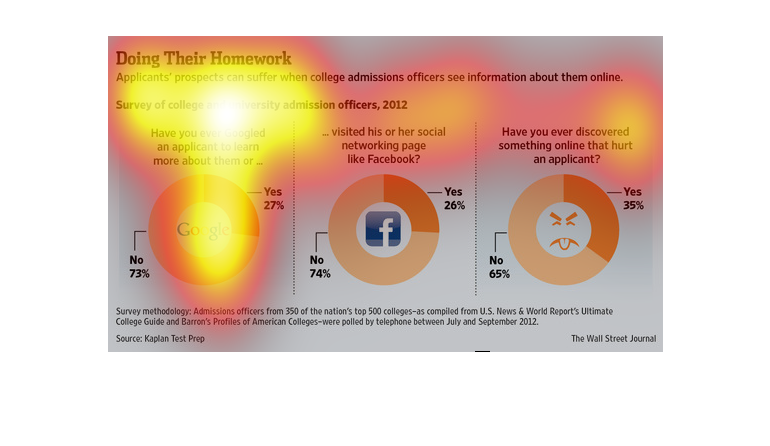
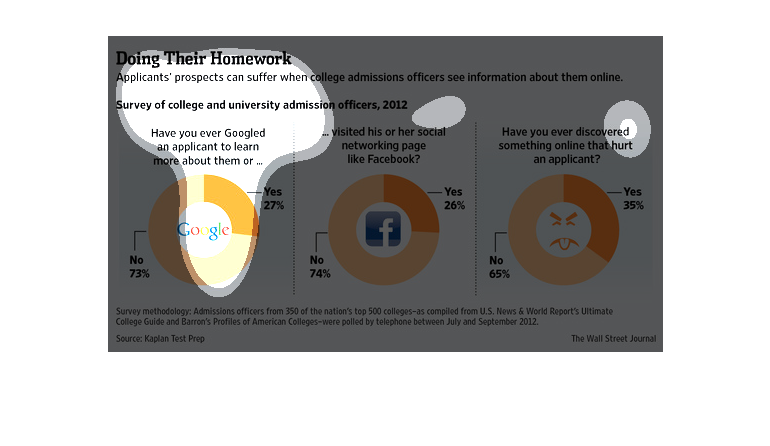
This chart describes doing their homework. Specifically, applicants' prospects can suffer
when college admissions officers see information about them online.
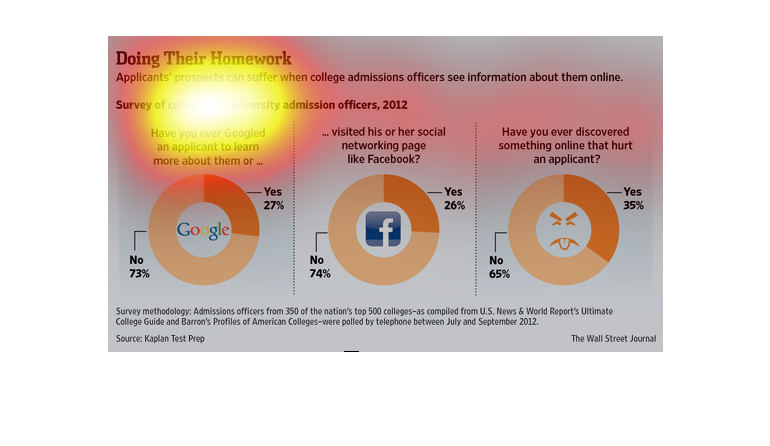
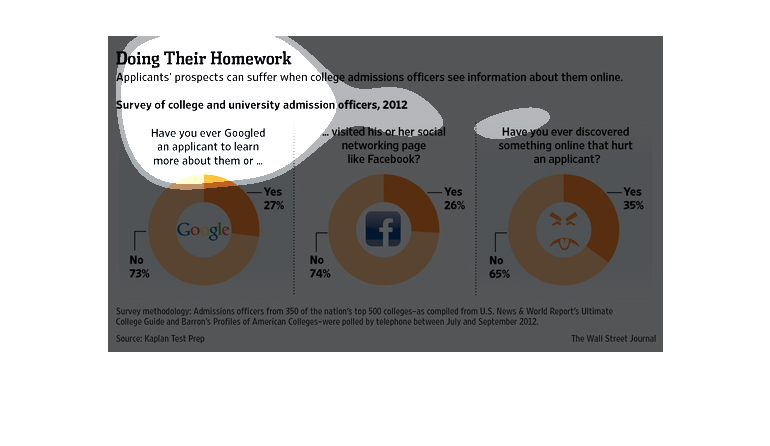
This is a group of three charts from 2012 depicting the number of college admissions officers
who "Do Their Homework" online on applicants to their colleges. The charts represent the number
of officers who used Google and Facebook, respectively, and those who have found "dirt" that
hurt an applicant.
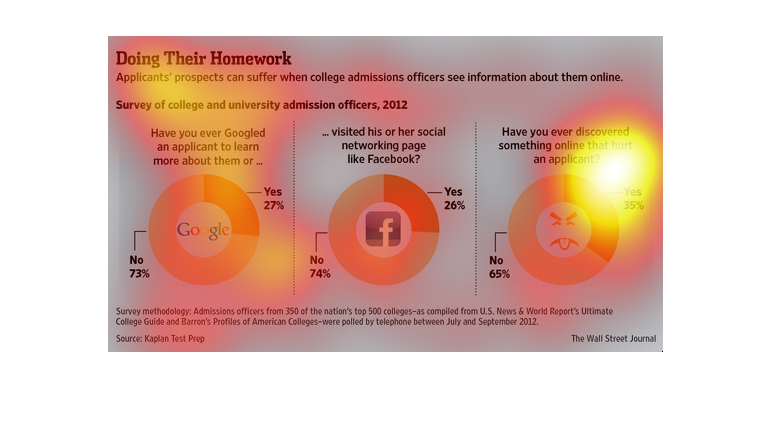
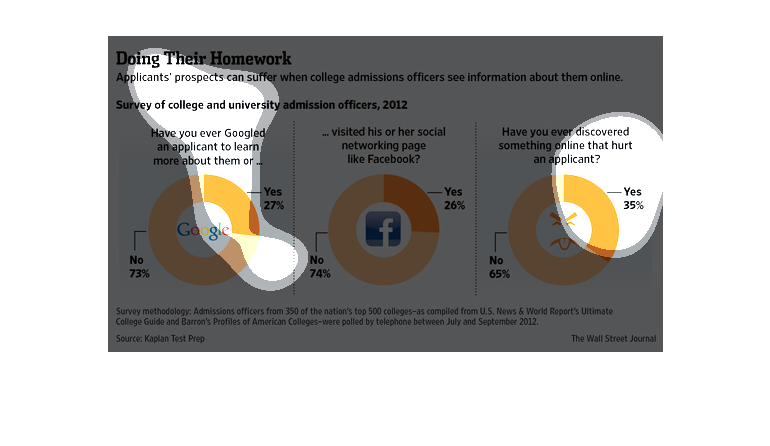
This is a series of statistics and charts depicting that applicants' prospects can suffer
when college admissions officers see information about them online.
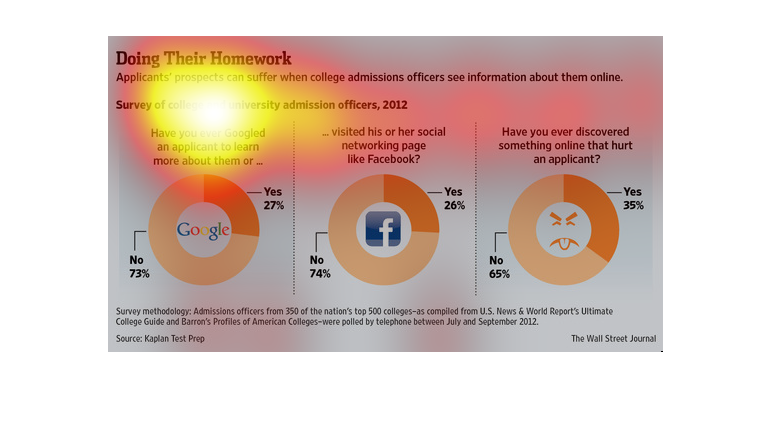
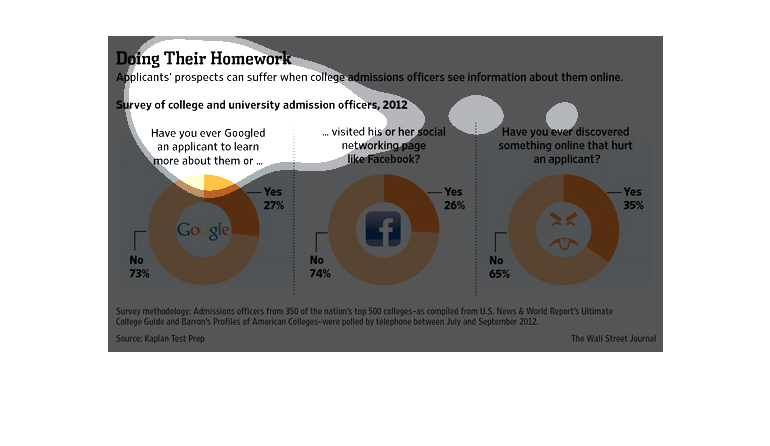
The image depicts how applicants prospects can suffer when college admission officers see
information about them online. A majority of admissions officers claim they have not sought
out information online regarding applicants, with a minority saying they have. A majority
of admissions officers (65%) have said they did not find anything negative that would hurt
an applicant versus 39% that said they did find something that would hurt applicants.
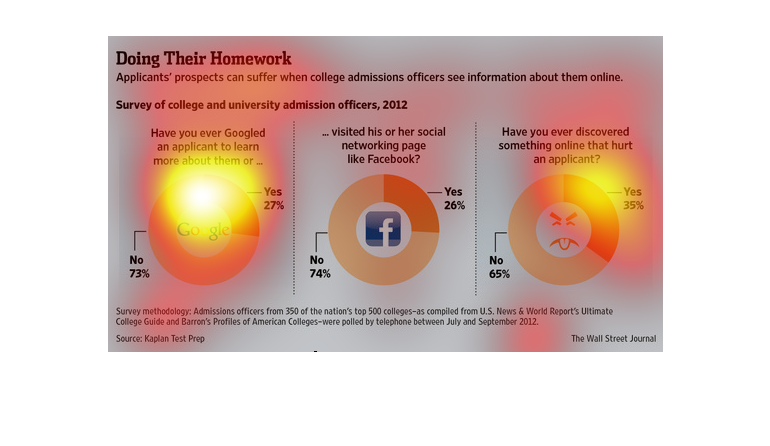
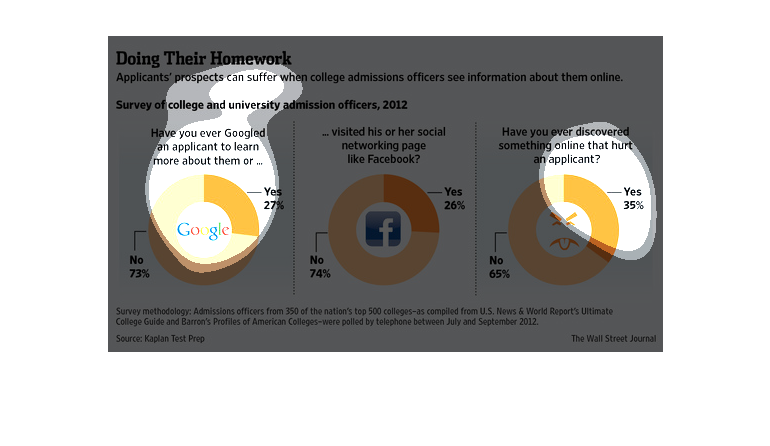
This contains three different circle graphs titled "Doing Their Homework". One is focused
on employers who google their applicant's name, another is for those who check facebooks,
and the third is centered on those who generally find things that hurt an applicant.
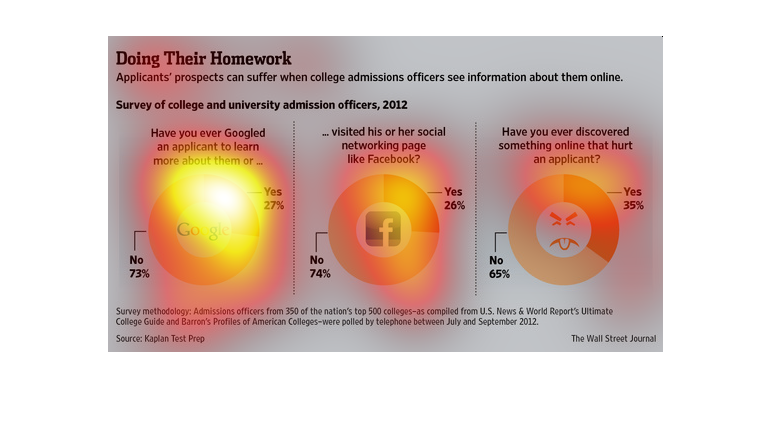
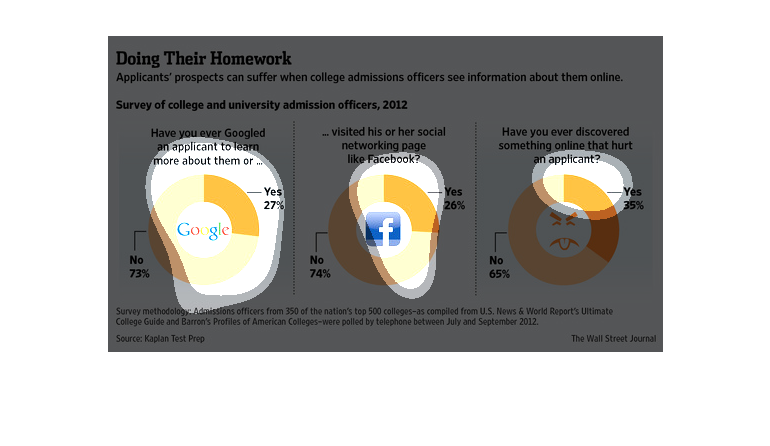
College applicants would benefit from cleaning up their social media image. Even though most
college admissions officers did not look at applicants' online profiles, thirty five percent
of officers admitted that what they found online about an applicant hurt their chances for
admission.
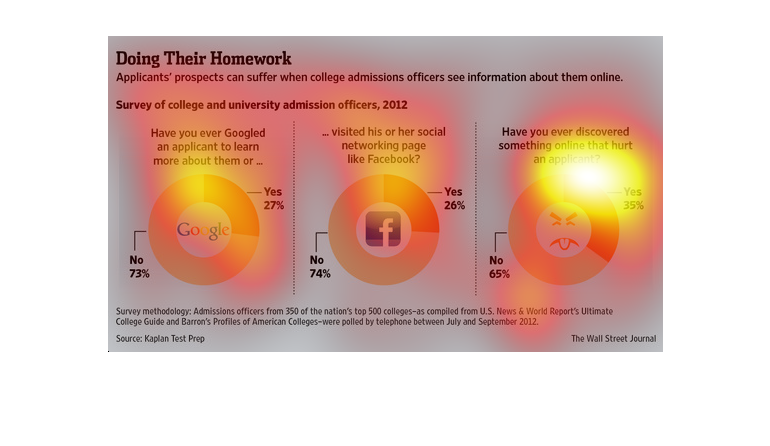
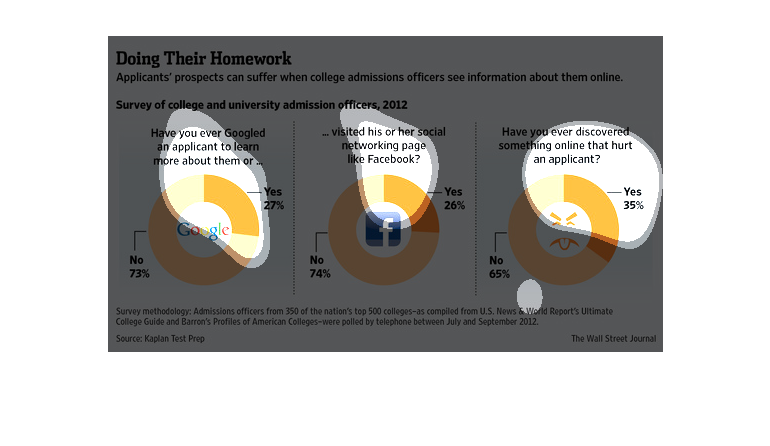
According to this chart 27% of potential employers have googled a possible future employee,
26% have checked their facebook. 35% of employers have found out things which hurt the attempts
to get a job from the employer.
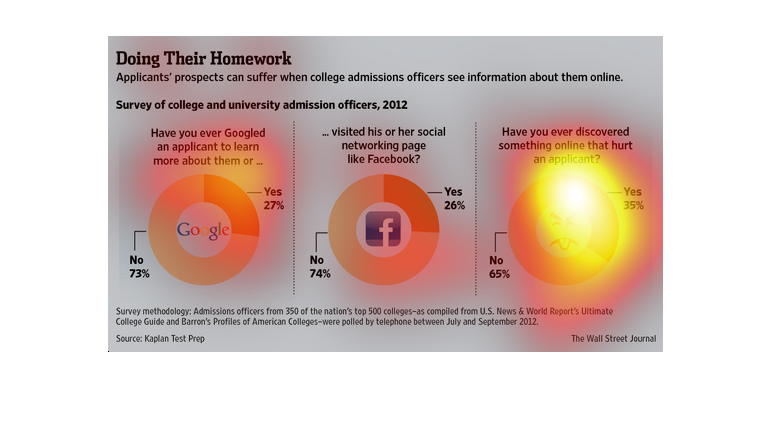
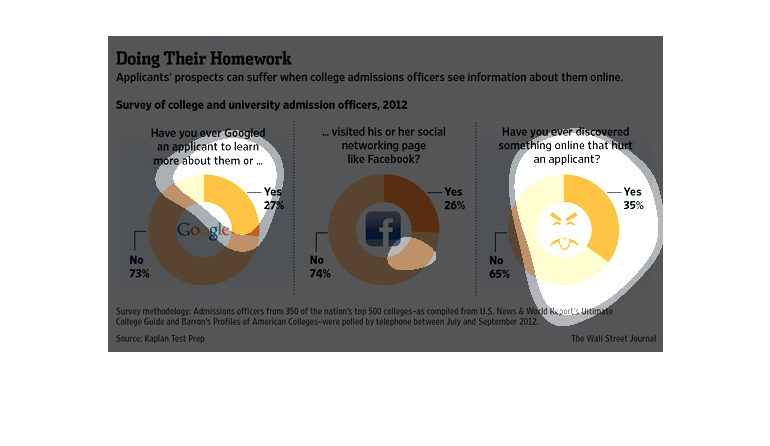
This graph displays information about how college admissions officers go about finding information
about college applicants and whether they check their social media. Approximately one quarter
of those surveyed said they have googled an applicant before or looked at their social media.
One third found information that harmed an applicant.
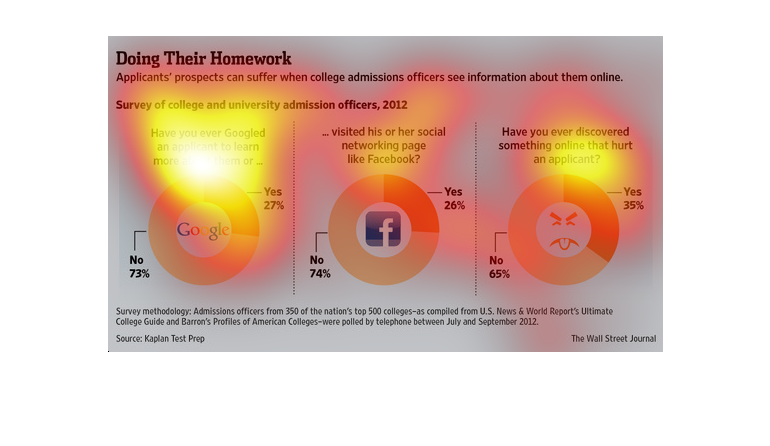
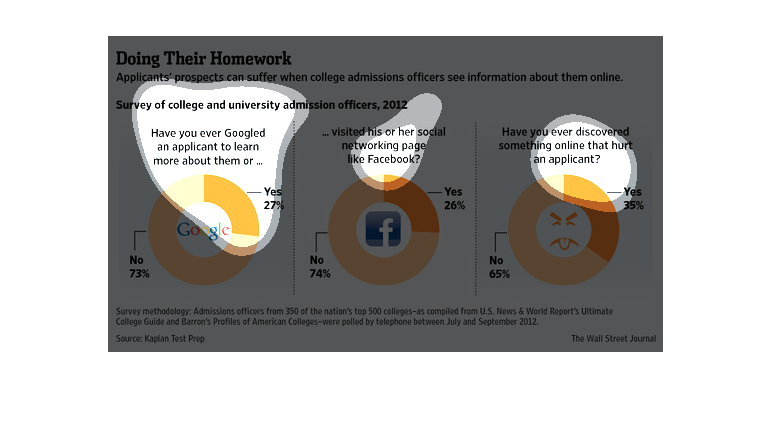
This is a graph asking how many people google potential applicants for college. They visited
social media pages such a twitter and facebook as well. 26% said yes.
